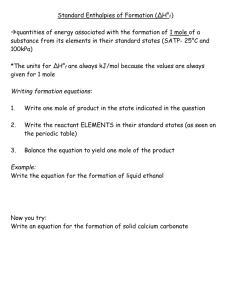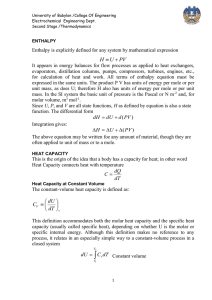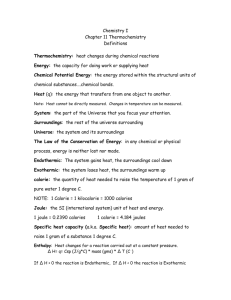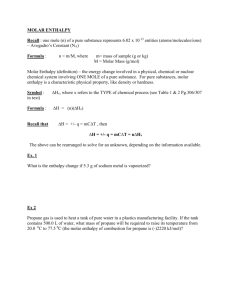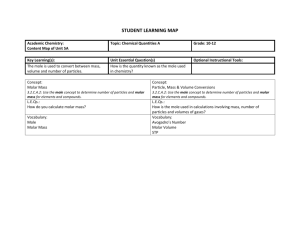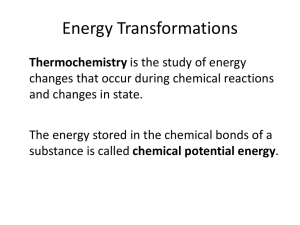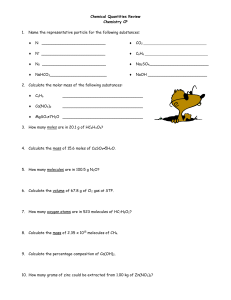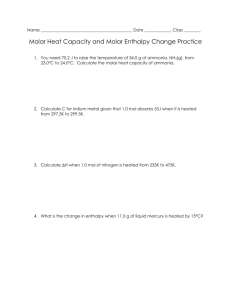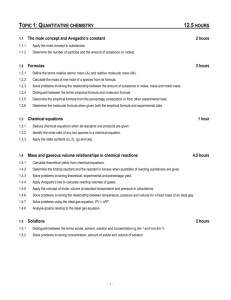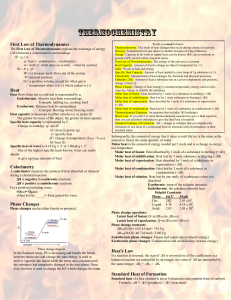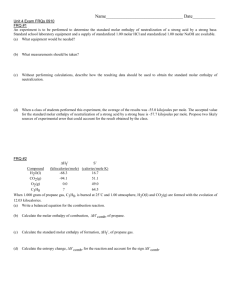Chapter 17 review Important Vocabulary • Thermochemistry
advertisement
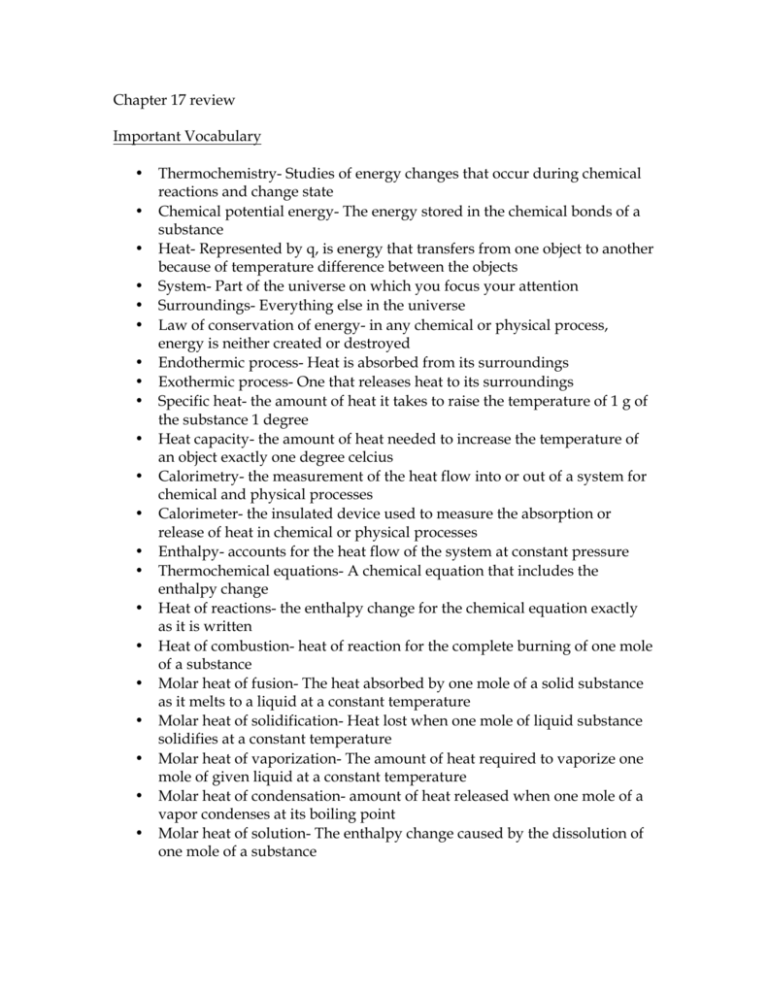
Chapter 17 review Important Vocabulary • • • • • • • • • • • • • • • • • • • • • Thermochemistry- Studies of energy changes that occur during chemical reactions and change state Chemical potential energy- The energy stored in the chemical bonds of a substance Heat- Represented by q, is energy that transfers from one object to another because of temperature difference between the objects System- Part of the universe on which you focus your attention Surroundings- Everything else in the universe Law of conservation of energy- in any chemical or physical process, energy is neither created or destroyed Endothermic process- Heat is absorbed from its surroundings Exothermic process- One that releases heat to its surroundings Specific heat- the amount of heat it takes to raise the temperature of 1 g of the substance 1 degree Heat capacity- the amount of heat needed to increase the temperature of an object exactly one degree celcius Calorimetry- the measurement of the heat flow into or out of a system for chemical and physical processes Calorimeter- the insulated device used to measure the absorption or release of heat in chemical or physical processes Enthalpy- accounts for the heat flow of the system at constant pressure Thermochemical equations- A chemical equation that includes the enthalpy change Heat of reactions- the enthalpy change for the chemical equation exactly as it is written Heat of combustion- heat of reaction for the complete burning of one mole of a substance Molar heat of fusion- The heat absorbed by one mole of a solid substance as it melts to a liquid at a constant temperature Molar heat of solidification- Heat lost when one mole of liquid substance solidifies at a constant temperature Molar heat of vaporization- The amount of heat required to vaporize one mole of given liquid at a constant temperature Molar heat of condensation- amount of heat released when one mole of a vapor condenses at its boiling point Molar heat of solution- The enthalpy change caused by the dissolution of one mole of a substance • • Hess’ law of heat summation- If you add two or more thermochemical equations to give a final equation, then you can also add the heats of reaction to give you the final heat of reaction Standard heat of formation- the change in enthalpy that accompanies the formation of one mole of a compound from its elements with all substances in their standard state Important information Specific heat (C) is measured in cal/g per degree celcius Important Equations 1. ! = !"∆! m=mass (g) C= Specific heat ∆ = change in heat (!! − !! ) = ! ! 2. ∆! = !"# Enthalpy (!)! (!)! 3. !× (!)! (!)! Rate of reaction (!)! (!)! 4. K=(!)! (!)! Equilibrium Important Notes 1. Gibbs law a. When the change in energy is negative, the reaction is favored b. When the change in energy is positive, the reaction is unflavored c. When there is no change in energy, the reaction is at equilibrium 2. In an equilibrium equation, whenever there is only one reactant in the denominator, you multiply that by K to give you !!" a. !!" = 1.8×10!! Review Questions Multiple choice 1. What happens to the water in a calorimeter when an exothermic reaction occurs in it? A. It absorbs heat, and a drop in temperature is observed. B. It absorbs heat, and a rise in temperature is observed. C. It releases heat, and a drop in temperature is observed. D. It releases heat, and a rise in temperature is observed. 2. How many joules are in 148 calories? (1 cal = 4.18 J) a. 6.61 J b. 148 J c. 35.4 J d. 619 J 3. Which of the following is a valid unit for specific heat? a. cal/g°C b. cal c. cal/g d. °C 4. A process that absorbs heat is a(n) ____. A .endothermic process B. exothermic process C. polythermic proces D. ectothermic process Short answer 1. Explain the difference between system and surrounding 2. Determine the equilibrium when PbCr!! → !" + !"!! 3. How many kJ are required to heat 45.0 g of H2O at 25.0 °C? C=4.184 Answers 1. 2. 3. 4. b c a a 5. A system is a specific point and the surrounding is the entire universe 6. 1.3×10!! 7. 14.121 Kj
